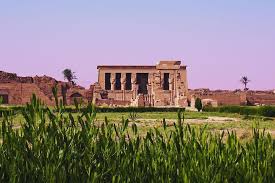egyption yoga
Overview
Ancient Egyptian monument highlight the ancient Egyptian civilization's profound focus on life and the afterlife, making it the only civilization to have lasted for more than 6,000 years. Built for life and the afterlife, Egyptian civilization's philosophies, beliefs, and practices intertwined with nature, the universe, spiritual renewal, and immortality. and they have the conception about the inspirit joureny whic know tody by differen names , yoga, mindfulness or meditation, panoramic vision, and the "renewal of spirit, soul, and body," the Egyptians had a unique understanding of balance and harmony. They didn't necessarily practice yoga in the way we think of it today (through rituals or stretching), but their spiritual and physical practices were deeply intertwined with the idea of maintaining inner harmony with oneself and the universe. Central to this idea was their concept of "maat" (the divine order of the universe). Balance, truth, and justice were essential to both physical and spiritual health. The Role of Spirituality and Meditation: The ancient Egyptians believed in the importance of ritual and meditation in aligning oneself with divine cosmic forces. They practiced meditation-like methods to connect with the gods and ensure their spiritual well-being. This might include silent contemplation, prayer, or even repeating certain divine words or phrases—similar to modern chants in meditation.
They also had specific deities associated with healing, such as Imhotep, who was not only a physician but also revered as a god of wisdom and knowledge. His teachings on physical and spiritual health may have included meditative and mental practices to align the inner self with universal truths.
The Afterlife and the Continuity of the Soul:
The Egyptians had a profound understanding of the afterlife, viewing it not simply as a continuation of existence, but as a transformation to a higher spiritual plane. This is where the idea of "regeneration" comes into play. The soul was considered an eternal essence undergoing a process of purification and renewal, especially after death. The famous Book of the Dead describes how the soul had to undergo various trials in the afterlife to achieve a state of harmony and balance, ultimately to be judged by Osiris. If the soul is "pure" and in balance with the universe, it is allowed to enter the afterlife and live in peace.
The Relationship Between Nature, Behavior, and the Afterlife:
The idea that behavior (especially moral behavior) shapes your earthly existence and your destiny in the afterlife was central to ancient Egyptian thought. The concept of "civilization" I have referred to, rooted in ancestral teachings, aimed to guide individuals in maintaining balance, virtue, and harmony. Behaviors were not merely actions in the material world; they were also reflections of an individual's spiritual alignment. For this reason, the Egyptians placed great importance on rituals, sacrifices, and living a righteous life—not only for social harmony, but also for spiritual and cosmic harmony. Furthermore, their relationship with nature—the veneration of the Nile, the sun (Ra), and other natural forces—also reflected their understanding of the cyclical nature of life. The rhythms of the seasons, the flooding of the Nile, and the movement of the stars were considered divine acts that connected human life to eternity and the infinite.
From this perspective, the Egyptian way of life was itself a form of constant renewal, where every aspect of existence (both material and spiritual) was intertwined and cyclical. They were not only preparing for a better afterlife; they were constantly striving to maintain balance at every moment of life.
Philosophical Legacy:
Comparing the Egyptians to other ancient civilizations, such as the Chinese, Indian, and European, it becomes clear that while each civilization had its own unique spiritual and philosophical traditions, the Egyptians placed a strong emphasis on the seamless flow between life and the afterlife, rather than a clear separation between them. Their spiritual practices and philosophies were designed to ensure that one's conduct in life reflected a higher, eternally universal truth.
This sense of interconnectedness, where nature, life, and the afterlife were all part of a single, continuous cycle, is one of the reasons why Egyptian civilization has endured for so long. Their teachings and rituals provided a framework for understanding not only the world around them, but also the fabric of existence itself.
In many ways, the ancient Egyptians' practices and beliefs about rejuvenating the spirit, soul, and body align with modern ideas about mindfulness, holistic well-being, and the interconnectedness of all aspects of life. What do you think of the way they seamlessly blended the physical and the spiritual?
Highlights
- the spiritual joureny

